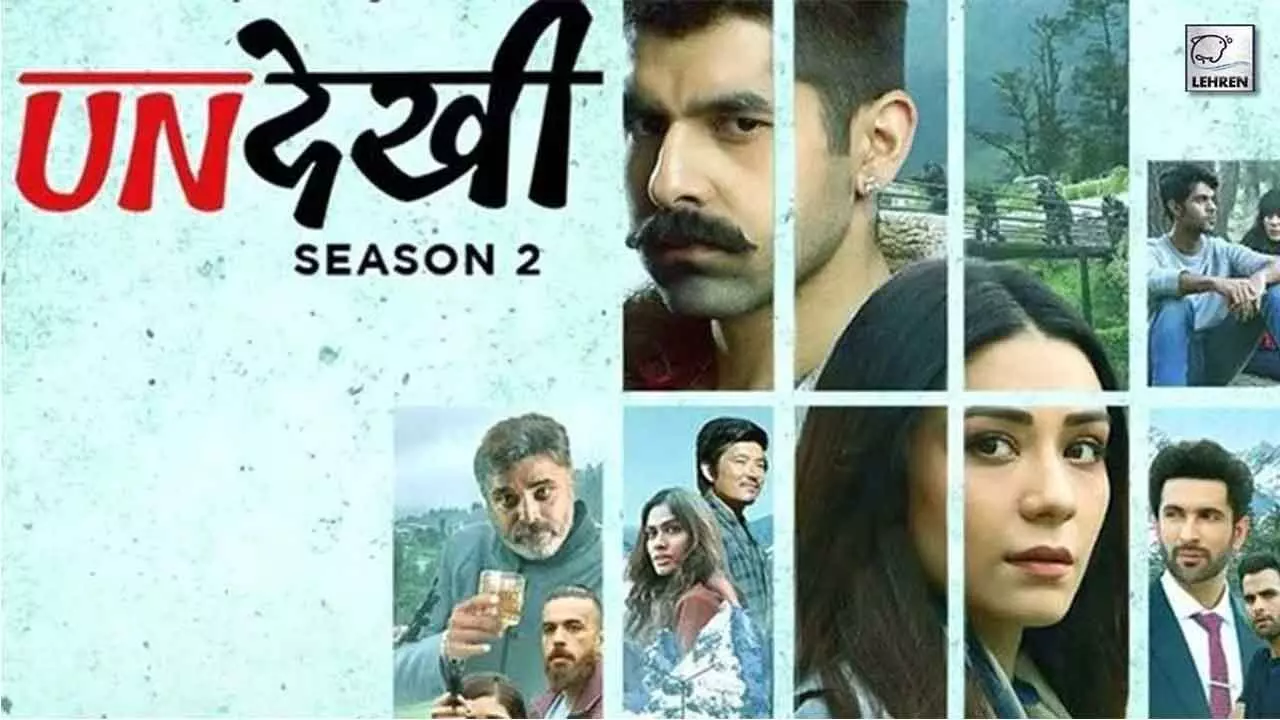Web Series ‘Undekhi-2’ Runs Into Controversy Over ‘Insult’ To Bengalis
The contentious dialogue has sparked outrage among viewers and social organizations
Web Series ‘Undekhi-2’ Runs Into Controversy Over ‘Insult’ To Bengalis

The fiery language of the notice also calls into question the role of certain Bengali collaborators in the production, accusing them of either indifference or complicity
A fresh controversy has erupted in the entertainment industry following a legal notice served to Sameer Nair, Managing Director of Applause Entertainment, by advocate Nripendra Krishna Roy on behalf of social activist Amritlal Das. The notice, addressed to Nair and co-producers of the popular web series Undekhi-2, alleges the use of a derogatory phrase targeting the Bengali community in Season 2, Episode 1.
The contentious dialogue, which includes an expletive directed at Bengalis, has sparked outrage among viewers and social organizations. Advocate Roy's notice accuses the producers of fomenting community ill will, defamation, and disrupting national harmony. It demands an explanation for the offensive content within 15 days, failing which a damage suit of ₹one crore and potential criminal proceedings will be initiated.
Talking to Bizz Buzz, Amritlal Das says, “If anyone wants to criticize or parody a character in cinema or OTT, that's acceptable. But how dare someone target and insult an entire community? I firmly believe that all filmmakers and creators of films, series, or OTT content must ensure they deliver quality content that does not harm or disrespect any community or religion in India.”
Das added that the notice emphasizes the contributions of Bengalis to India's cultural, intellectual, and political legacy, citing luminaries such as Rabindranath Tagore, Swami Vivekananda, and Subhas Chandra Bose. It argues that the portrayal of a Bengali police officer in a derogatory light reflects poorly on the creators’ sensitivity and intent.
"My client, Mr Das, was deeply offended and suffered psychosomatic distress upon viewing the scene. This insult to the Bengali identity cannot go unanswered," stated Advocate Roy.
Streaming platforms thrive on user engagement, often measured through subscriptions, viewership, and word-of-mouth promotion. While controversies may temporarily boost viewership out of curiosity, long-term retention depends on a platform's ability to appeal to a broad audience without alienating specific communities.
In cases like this, sustained backlash from a significant demographic, such as the Bengali community, could lead to cancellations or boycotts, impacting subscription revenues. In an increasingly competitive OTT market, brand reputation is as critical as content quality.
A perception of insensitivity can tarnish a company’s image, making future collaborations with talent, directors, or even investors more challenging. With Undekhi-2 embroiled in a community-centric controversy, stakeholders might reevaluate their associations with Applause Entertainment and its partners.
The fiery language of the notice also calls into question the role of certain Bengali collaborators in the production, accusing them of either indifference or complicity. The document critiques what it terms a “pan-Indian tendency of Bengali-baiting,” a practice it links to Bengal's perceived current lull in producing notable personalities, despite its illustrious history.
Social organizations like the Sara Asom Bengali Oikyomoncha, of which Mr. Das is the General Secretary, have joined the call for accountability, demanding both a public apology and the removal of the offensive content.
The controversy has sparked debate on social media, with many users criticizing the depiction, while others argue for the creative freedom of artists.
As the legal deadline looms, all eyes are on the producers’ next move in what could become a precedent-setting case in the realm of entertainment law.

